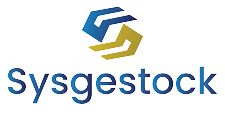
Revolutionize Your Retail Business: The Ultimate Guide to Choosing the Best Management Software
Are you ready to propel your retail business to new heights of efficiency and profitability? Choosing the right management software is pivotal to achieving this goal. Welcome to ‘Revolutionize Your Retail Business: The Ultimate Guide to Choosing the Best Management Software.’ In today’s fast-paced retail landscape, technology is the driving force behind success. Whether you’re a small boutique or a booming chain, the perfect management software can streamline operations, enhance customer experiences, and boost your bottom line.
Within this comprehensive guide, we’ll equip you with the knowledge and insight to make an informed decision that aligns with your unique business needs. From inventory and employee management to point of sale and customer relationship tools, we’ll delve into the essential features that can make or break your retail operations. Get ready to revolutionize your business with the power of cutting-edge management software. Let’s embark on this transformative journey together.
Understanding retail management software
Retail management software is a technological solution designed to help businesses manage their operations with greater ease and efficiency. It encompasses a range of applications and tools that aid in various aspects of retail operations, including inventory management, sales tracking, customer relationship management, and more. In essence, it serves as the central nervous system of a retail business, facilitating seamless coordination between different functions and providing valuable insights for informed decision-making. By leveraging the capabilities of retail management software, businesses can automate processes, minimize errors, and gain a competitive edge in the market.
Retail management software can offer a host of benefits for businesses of all sizes. One of the most significant advantages is the ability to streamline operations and improve overall efficiency. By automating routine tasks such as inventory tracking, ordering, and sales reporting, businesses can free up valuable time and resources to focus on strategic initiatives and customer engagement. Additionally, the insights derived from the data gathered by the software can inform critical business decisions, ranging from product assortment and pricing to marketing strategies and customer retention efforts. Ultimately, the right retail management software can empower businesses to operate more effectively and adapt swiftly to market demands.
Advantages of using retail management software
When evaluating retail management software options, it’s crucial to consider the key features that align with your business requirements. While the specific needs may vary depending on the nature and scale of your retail operations, there are several fundamental features that are universally valuable. Robust inventory management capabilities are essential for maintaining optimal stock levels, tracking product movements, and preventing stockouts or overstock situations. The software should also offer comprehensive sales and customer data analysis tools, enabling businesses to gain actionable insights into purchasing patterns, customer preferences, and sales performance. Furthermore, integrated point of sale (POS) functionality, intuitive user interfaces, and multi-channel integration capabilities are key features that contribute to a seamless and cohesive retail management experience.
Key features to look for in retail management software
When exploring retail management software solutions, businesses will encounter different types of systems tailored to specific industry niches and operational requirements. One common distinction is between cloud-based and on-premises software. Cloud-based retail management software, also known as Software as a Service (SaaS), is hosted on remote servers and accessed through the internet, offering scalability, accessibility, and automatic updates. On the other hand, on-premises software is installed and operated from a local server or computer, providing greater control over data and infrastructure. Additionally, specialized retail management software may cater to specific sectors such as apparel, electronics, or grocery, offering tailored features and functionalities to meet the unique demands of each niche.
Types of retail management software
Selecting the right retail management software is a critical decision that requires careful consideration of various factors. Firstly, it’s essential to assess the scalability of the software, ensuring that it can accommodate the growth and evolving needs of your business. Compatibility with existing hardware and software infrastructure, as well as the ease of integration with other business applications, should also be evaluated. Moreover, the cost of implementation, including licensing fees, subscription plans, and potential customization expenses, must align with your budget and expected return on investment. Additionally, the level of support and training provided by the software vendor, as well as the data security measures in place, are crucial considerations for a successful implementation.
Factors to consider when choosing retail management software
The successful implementation of retail management software hinges on thorough planning, effective communication, and strategic execution. Before the actual deployment, businesses should conduct a comprehensive analysis of their current processes and identify areas that can be optimized or automated through the software. Clear objectives and performance metrics should be established to gauge the impact of the software on key operational aspects. Moreover, engaging key stakeholders and employees in the implementation process, providing adequate training, and offering ongoing support are integral to ensuring a smooth transition. Regular assessments and feedback mechanisms can help identify and address any challenges or opportunities for enhancement.
Implementing retail management software in your business
Adequate training and ongoing support are essential components of maximizing the value derived from retail management software. The software vendor or provider should offer comprehensive training programs tailored to the specific roles and responsibilities within the business. This may include user training for front-line staff, administrative training for managers, and technical training for IT personnel. Furthermore, readily accessible support channels, such as help desks, knowledge bases, and dedicated customer service representatives, are critical for addressing issues, resolving queries, and optimizing the use of the software. Proactive updates, troubleshooting assistance, and continuous improvement initiatives should be part of the support framework to ensure the software remains aligned with evolving business needs.
Training and support for retail management software
In the ever-expanding landscape of retail management software, several prominent solutions have garnered widespread recognition for their comprehensive features and user-friendly interfaces. One such option is Shopify, a leading e-commerce platform that also offers robust retail management capabilities, including inventory management, order processing, and seamless online storefront integration. Another popular choice is Lightspeed, renowned for its intuitive POS system, inventory tracking tools, and extensive reporting functionalities. Additionally, Square’s all-in-one retail solution, encompassing POS, payments, and inventory management, has gained popularity for its simplicity and adaptability. These are just a few examples of the diverse array of retail management software options available, each catering to different business models and requirements.
Popular retail management software options
To aid in the decision-making process, it’s essential to conduct a thorough comparison of top retail management software providers, considering factors such as pricing, feature sets, user reviews, and customer support quality. While Shopify, Lightspeed, and Square are renowned options, other contenders like Vend, Revel Systems, and ShopKeep also offer compelling solutions tailored to specific business needs. Assessing the scalability, customization options, and integration capabilities of each software provider can help businesses determine the best fit for their unique requirements. Moreover, seeking insights from industry forums, consulting with technology experts, and leveraging trial periods or demonstrations can provide valuable firsthand experience to inform the selection process.
Comparison of top retail management software providers
In conclusion, the choice of retail management software holds significant implications for the operational efficiency and competitive positioning of retail businesses. By embracing the capabilities of modern management software, businesses can elevate their capabilities in inventory management, sales tracking, customer engagement, and strategic decision-making. The journey to revolutionize your retail business begins with a thorough understanding of your operational needs, a clear assessment of available software options, and an informed decision-making process. With the right retail management software in place, your business can thrive in the dynamic retail landscape, delivering exceptional experiences to customers and driving sustained growth and success. Embrace the transformative power of cutting-edge management software and unlock the full potential of your retail business.
This comprehensive guide has armed you with the knowledge needed to make an informed decision when selecting the best management software for your retail business. Remember, the right software can streamline operations, enhance customer experiences, and boost your bottom line. It’s time to revolutionize your business with cutting-edge management software. Let’s embark on this transformative journey together.
10: Conclusion
In the digital age, the success of a retail business hinges on its ability to adapt to the ever-evolving landscape. Retail management software serves as the backbone of operations, offering a seamless integration of essential functions. From tracking inventory levels and analyzing sales data to managing customer relationships and streamlining transactions, the right software can make a world of difference. By harnessing the power of technology, retailers can enhance their overall efficiency, improve customer satisfaction, and drive sustainable growth. Investing in the right retail management software is not just a choice; it’s a strategic imperative that can set businesses apart in a competitive market.
In today’s competitive retail environment, customer expectations are higher than ever. With the rise of e-commerce and omnichannel retailing, consumers demand seamless experiences across all touchpoints. Retail management software plays a pivotal role in meeting these expectations by enabling businesses to unify their operations and deliver exceptional customer service. From providing real-time inventory visibility to facilitating personalized marketing campaigns, the right software empowers retailers to exceed customer demands while driving long-term loyalty and retention. As the retail landscape continues to evolve, embracing advanced management software is no longer a luxury but a necessity for sustainable success.
